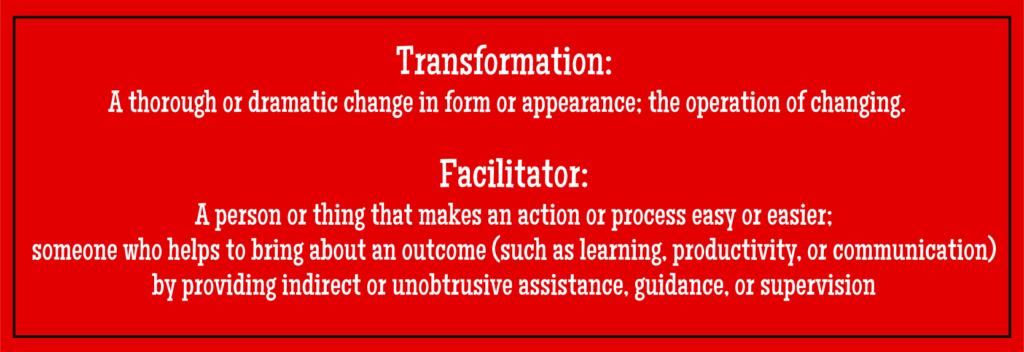Confused About Coaching?

It happens all the time! When people discover that I’m a Life and Leadership Coach, they kindly nod and smile, yet the blank expression on their face gives away that they really have no idea what I do. Some attempt to get advice. A few wonder if I am trying to replace God in people’s lives. A handful offer sympathy for having to deal with “those” kind of people. Others steer clear.
To be honest, coaching is best understood when you experience for yourself, but even then it’s difficult to articulate what it’s all about to someone else. That’s why I’ve decided to shed some light on the confusion surrounding coaching. Maybe remove a bit of the mystery!
Have you been confused about..
What a Coach Is?
These days it seems like there is a coach everywhere you turn! While coaching is rapidly gaining in popularity, the term coach dates back to 1830 and was actually a slang term used to refer to a tutor who helped a student get through an exam.
It wasn’t until 1861 that the term coach was associated with athletics, yet that is how we typically conceive of it today.
Tutors or sports coaches operate as the expert, the one dictating what’s best for you so that you can pass the test or achieve the win, as the case might be. While a coach is certainly there to help you “pass the test or win,” they don’t dictate how you get there. They support, encourage, challenge, and ask you powerful questions that pave the way to helping you get where you want to be.
What a Coach Does?
I like to think of a coach as a mirror and a defroster. I know, not quite what you were expecting, but stick with me!
Imagine what it would be like to drive your car without mirrors or a defroster. If you are going slow and not very far, you might be able to limp along. These days, most of us are traveling through life at a brisk pace – a pace desperately in need of resources like mirrors and defrosters!
A coach serves as a mirror by creating a space for their clients to pause and take an honest look at themselves and their relationship to others. Not the quick glance in the mirror, but the get-out-the-magnifying- mirror-and-examine-what’s-what look in the mirror. In a fast paced world, taking the time to examine and reflect is hard to do and yet yields surprising results! In fact, it’s hard to make changes without pausing long enough to get to the heart of the matter.
Sometimes I look in the mirror and I’m not so thrilled with what I see. Getting older is a blessing – you know what the alternative is – but I can be rather judgmental about what I see. With powerful questions, a coach helps you see YOU from a whole new perspective that opens the door for you to appreciate yourself in a fresh way, and be motivated to make needed adjustments.
And that defroster is a life saver when your windshield is fogging over. And without clarity around your purpose, values, personality, strengths, Fear Monster, and more, you won’t have the clarity you need to perform at your best.
I like to think of a coach as a Transformation Facilitator. That’s a mouthful, but it conveys so much more than “coach” does.

Did you know that an ICF (International Coach Federation) certified coach never tells you what to do? You, the client, determine the focus of each coaching session as well as what you want to get out of the session. The coach conducts the conversation in a way that ensures that you end the session getting exactly what you wanted out of it. This conversation often takes place in person, but 99% of my coaching takes place over the phone making it convenient and saving you time too!
Imagine doing life with a Transformation Facilitator!
What Qualifies a Coach?
There are a whole lot of people out there calling themselves coaches, yet there are a significantly smaller number of coaches who are actually ICF certified. The International Coach Federation maintains high professional standards in the field of coaching, so when a coach is ICF certified it means that they have completed a rigorous process including…
- A minimum of 60 hours of ICF approved coach training
- 10 hours of working with a mentor coach over a 3 month period of time
- Submitting recordings of coaching calls to show that you are coaching to ICF standards
- Logging at least 100 coaching hours
- Passing a challenging Coach Knowledge Assessment Exam
Coaches may be experts in many areas, but they don’t necessary have to be an expert in your field in order to successfully assist you. A trained coach knows how to guide the conversation, and sometimes NOT knowing every detail about your specific situation encourages questions that someone more familiar might skip, questions that might potentially invite you to view your situation from a whole new perspective.
Who is Coaching For?
There are a number of obstacles that keep people from hiring a coach. Obstacles like…
- Thinking that coaching is a luxury
- Being too busy
- The possibility that I will appear weak or perceived as underperforming
- Putting it off – I will enlist the help of a coach when…
- Thinking I can figure it out myself
The truth is: it’s hard to put a price on a life that’s lived with skill, peace, and joy! And there is no time like the present! In fact, putting off coaching is prolonging the pain – whatever that might be for you.
There will always be plenty vying for your attention and, in reality, coaching helps you prioritize and eliminate what’s not worth your time.
Coaching is ideal for anyone who desires to fine tune their life, add skills, or make drastic changes personally and/or professionally.
It takes strength to ask for help – there’s nothing weak about that! If you want to be empowered and operate more fully in who God created you to be, coaching is a terrific option! If you want to grow – it’s a great choice too! And if you were able to figure it out on your own, you would already be where you wanted to be!
How Coaching Helps?
A coach asks powerful questions that help you…
- Identify blind spots and limiting beliefs
- Navigate transitions
- Prioritize
- Live with passion and purpose
- Discover your Fear Monster and who God created you to be
- Pinpoint and operate in your strengths
- Manage time more effectively
- Understand their personality and thinking preferences and adapt to others that are not like you
- Improve your relationships
- Process critical decisions – a sounding board
- Gain invaluable clarity
- Develop crucial leadership skills
- Operate as a whole person
- Improve self-awareness
- Connect the dots and gain fresh perspectives leading to desirable results
You can try “coaching” yourself, but that rarely uncovers the blind spots or limiting beliefs that are hindering your progress. That’s why I work with a coach myself! Not to mention, going it alone is time consuming.
It’s true of most things – you get what you pay for. That applies to coaching as well. I am fully committed to doing everything I can to help you accomplish your goals. The question is, are you ready to do the work?
What questions do you have about coaching? How are you dealing with the complexities of life and work? What if you were able to operate more skillfully with peace and joy?
© Can Stock Photo / deandrobot
